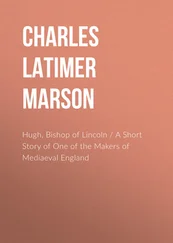Paul Vinogradoff - Villainage in England - Essays in English Mediaeval History
Здесь есть возможность читать онлайн «Paul Vinogradoff - Villainage in England - Essays in English Mediaeval History» — ознакомительный отрывок электронной книги совершенно бесплатно, а после прочтения отрывка купить полную версию. В некоторых случаях можно слушать аудио, скачать через торрент в формате fb2 и присутствует краткое содержание. Жанр: foreign_prose, Юриспруденция, История, foreign_edu, foreign_antique, на английском языке. Описание произведения, (предисловие) а так же отзывы посетителей доступны на портале библиотеки ЛибКат.
- Название:Villainage in England: Essays in English Mediaeval History
- Автор:
- Жанр:
- Год:неизвестен
- ISBN:нет данных
- Рейтинг книги:4 / 5. Голосов: 1
-
Избранное:Добавить в избранное
- Отзывы:
-
Ваша оценка:
- 80
- 1
- 2
- 3
- 4
- 5
Villainage in England: Essays in English Mediaeval History: краткое содержание, описание и аннотация
Предлагаем к чтению аннотацию, описание, краткое содержание или предисловие (зависит от того, что написал сам автор книги «Villainage in England: Essays in English Mediaeval History»). Если вы не нашли необходимую информацию о книге — напишите в комментариях, мы постараемся отыскать её.
Villainage in England: Essays in English Mediaeval History — читать онлайн ознакомительный отрывок
Ниже представлен текст книги, разбитый по страницам. Система сохранения места последней прочитанной страницы, позволяет с удобством читать онлайн бесплатно книгу «Villainage in England: Essays in English Mediaeval History», без необходимости каждый раз заново искать на чём Вы остановились. Поставьте закладку, и сможете в любой момент перейти на страницу, на которой закончили чтение.
Интервал:
Закладка:
Stubbs.
Stubbs' 'Constitutional History,' embracing as it does the whole of the Middle Ages, is not designed to trace out some one idea for the sake of its being new or to take up questions which had remained unheeded by earlier scholars. Solid learning, critical caution and accuracy are the great requirements of such an undertaking, and every one who has had anything to do with the Bishop of Oxford's publications knows to what extent his work is distinguished by these qualities. If one may speak of a main idea in such a book as the Constitutional History of a people, Stubbs' main idea seems to be, that the English Constitution is the result of administrative concentration in the age of the Normans of local self-govermment formed in the age of the Saxons. This conclusion is foreshadowed in Palgrave's work, but what appears there as a mere hypothesis and in confusion with all kinds of heterogeneous elements, comes out in the later work with the overwhelming force of careful and impartial induction. Stubbs' point of view is a Germanist one. The book begins with an estimate of Teutonic influence in the different countries of Europe, and England is taken in one sense as the most perfect manifestation of the Teutonic historical tendency. The influx of Frenchmen and French ideas under William the Conqueror and after him had important effects in rousing national energy, contributing to national unification, settling the forms of administration and justice, but at bottom there remained the Teutonic character of the nation. The 'Constitutional History' approaches the question of the village community, but its object is strictly limited to the bearing of the problem on general history and to the testimony of direct authority. It starts from the community in land as described by Cæsar and Tacitus, and notices that Saxon times present only a few scattered references to communal ownership. Most of the arable land was held separately, but the woods, meadow, and pasture still remained in the ownership of village groups. The township with its rights and duties as to police, justice, and husbandry was modified but not destroyed by feudalism. The change from personal relations to territorial, and from the freedom of the masses to their dependency, is already very noticeable in the Saxon period. The Norman epoch completed the process by substituting proprietary rights in the place of personal subordination and political subjection. Still even after conquest and legal theory had been over the ground, the compact self-government of the township is easily discernible under the crust of the manorial system, and the condition of medieval villains presents many traces of original freedom.
Gneist.
Gneist's work is somewhat different in colouring and closely connected with a definite political theory. Tocqueville in France has done most to draw attention to the vital importance of local self-government in the development of liberal institutions; and Stubbs' history goes far to demonstrate Tocqueville's general view by a masterly statement as to the origins of English institutions. In Gneist's hands the doctrine of decentralisation assumes a particular shape by the fact that it is constructed on a social foundation; the German thinker has been trying all along to show that the English influence is not one of self-government only, but of aristocratical self-government. The part played by the gentry in local and central affairs is the great point of historical interest in Gneist's eyes. Even in the Saxon period he lays stress chiefly on the early rise of great property, and the great importance of 'Hlafords' in social organisation. He pays no attention to the village community, and chiefly cares for the landlord. But still even Gneist admits the original personal freedom of the great mass of the people, and his analysis of the English condition is based on the assumption, that it represents one variation of Teutonic development: this gives Gneist a place among the Germanists, although his views on particular subjects differ from those of other scholars of the same school. 23 23 See especially his Englische Verfassungsgeschichte.
The Mark system.
Its chief representatives have acquired such a celebrity that it is hardly necessary to insist again, that excellent work has been done by them for the study of the past. But the direction of their work has been rather one-sided; it was undertaken either from the standpoint of political institutions or from that of general culture and external growth; the facts of agriculture, of the evolution of classes, of legal organisation were touched upon only as subsidiary to the main objects of general history. And yet, even from the middle of the century, the attention of Europe begins to turn towards those very facts. The 'masses' come up with their claims behind the 'classes,' the social question emerges in theory and in practice, in reform and revolution; Liberals and Conservatives have to reckon with the fact that the great majority of the people are more excited, and more likely to be moved by the problems of work and wages than by problems of political influence. The everlasting, ever-human struggle for power gets to be considered chiefly in the light of the distribution of wealth; the distribution of society into classes and conditions appears as the connecting link between the economical process and the political process. This great change in the aspect of modern life could not but react powerfully on the aspect of historical literature. G.F. von Maurer and Hanssen stand out as the main initiators of the new movement in our studies. The many volumes devoted by G.F. Maurer 24 24 Einleitung in die Geschichte der Hof-, Dorf-, Mark- und Städteverfassung in Deutschland, 1 vol.; Geschichte der Frohnhöfe, 4 vol.; Geschichte der Dorfverfassung, 1 vol.; Geschichte der Markenverfassung, 1 vol.; Geschichte der Städteverfassung, 4 vol.
to the village and the town of Germany are planned on a basis entirely different from that of his predecessors. Instead of proceeding from the whole to the parts, and of using social facts merely as a background to political history, he concentrates everything round the analysis of the Mark, as the elementary organisation for purposes of husbandry and ownership. The Mark is thus taken up not in the vague sense and manner in which it was treated by Kemble and his followers; it is described and explained on the strength of copious, though not very well sifted, evidence. On the other hand, Hanssen's masterly essays 25 25 Collected in 2 volumes of Agrarhistorische Untersuchungen.
on agrarian questions, and especially on the field-systems, gave an example of the way in which work was to be done as to facts of husbandry proper.
Nasse.
Nasse's pamphlet on the village community 26 26 Zur Geschichte der mittelalterlichen Feldgemeinschaft in England, 1869.
may be considered as the first application of the new methods and new results to English history. The importance of his little volume cannot easily be overrated: all subsequent work has had to start from its conclusions.
Nasse's picture of the ancient English agricultural system, though drawn from scanty sources, is a very definite one. Most of the land is enclosed only during the latter part of the year, and during the rest of the year remains in the hands of the community. Temporary enclosures rise upon the ploughed field while the crop is growing; their object, however, is not to divide the land between neighbours but to protect the crop against pasturing animals; the strips of the several members of the township lie intermixed, and their cultivation is not left to the views and interests of the owners, but settled by the community according to a general plan. The meadows are also divided into strips, but these change hands in a certain rotation determined by lot or otherwise. The pasture ground remains in the possession of the whole community. The notion of private property, therefore, can be applied in this system only to the houses and closes immediately adjoining them.
Читать дальшеИнтервал:
Закладка:
Похожие книги на «Villainage in England: Essays in English Mediaeval History»
Представляем Вашему вниманию похожие книги на «Villainage in England: Essays in English Mediaeval History» списком для выбора. Мы отобрали схожую по названию и смыслу литературу в надежде предоставить читателям больше вариантов отыскать новые, интересные, ещё непрочитанные произведения.
Обсуждение, отзывы о книге «Villainage in England: Essays in English Mediaeval History» и просто собственные мнения читателей. Оставьте ваши комментарии, напишите, что Вы думаете о произведении, его смысле или главных героях. Укажите что конкретно понравилось, а что нет, и почему Вы так считаете.












